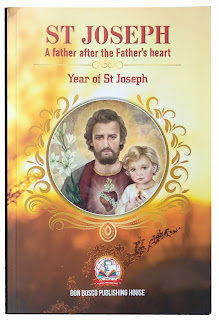Bernard Lonergan on the Difference between Philosophy and Theology
Bernard Lonergan (1904-1984)
is perhaps one of the greatest, yet underrated philosophers of the last
century. His name is usually eclipsed by other heavyweights in the philosophical
arena like Bertrand Russell, Ludwig Wittgenstein, Edmund Husserl, Martin
Heidegger, Hans-Georg Gadamer and the like. This oversight however, is not due
to his diminutive popularity but to blatant neglect. He featured on the cover
of Time magazine (1970) on account of being “the finest philosophic
thinker of the 20th century.”This says a lot about the person he was
and the lasting contribution he made to philosophical discourse.
One of the many things that
struck me while studying his though was the interesting reflection he makes on
the subjects of philosophy and theology. He starts out by stating that there is
no absolute separation between philosophy and theology since they are
isomorphic, however, a distinction can be made between the two. This
distinction is on account of their different starting points but the final
solution they arrive at is the same. At the outset it must be made clear that
both philosophy and theology begin with the same subject, i.e. the human
person. Already here, he makes a slight variation from tradition theological
thinking where one would be expected to begin from Divinely Revealed Truth/s.
Philosophy views the person
as s/he is, i.e., it takes into account the person’s facticity, history,
tradition, culture and so on. It emphasizes self-appropriation or the process
by which a person gets in touch with him/herself and his/her surroundings and
is able to make sense of them. Thus, philosophy sees a person as one in need of
conversion. Conversion, for Lonergan has quite a different meaning than the
colloquial one. He understands conversion to be of three types: Intellectual,
Moral and Religious. The first type of conversion has to do with acquiring
truth. The second is concerned with the choice of values over subjective passions
and the third can be described as the state of “being in love in an
unrestricted manner”.
On the other hand, theology
begins with data, not just any data but data impregnated with meaning. What
this means is that, it sees the person, his/her situation, Divine Revelation
and so on as primary data which require to be sorted, classified and worked
upon in order to reach conclusions. It doesn’t take things for granted.
Lonergan was of the opinion that traditional theology, in its very method of
beginning from revealed truths, negated or left out the whole aspect of history
and human context. In order to overcome this lacuna, he suggests the starting
point, data. Theology looks at the human person as one in need of grace. The
process of theologizing is guided by history or the tradition to which one
belongs.
Lonergan emphasizes the
need and vital importance of conversion. In fact, he makes it the pivot for both
philosophy and theology. While in philosophy, conversion mostly happens
spontaneously (Intellectual Conversion - Although the other conversions also
take place), in theology it is a thematic and deliberate process (Religious
Conversion – again though the other two are not neglected).
I was taken up by these
views of his and feel that they really help make theology far more appropriate,
practical and engaging. Although, the study of theology is still a few years
away, I think this approach of Lonergan could help me enter deeper into the
mysteries of life, love and God that will be the focus of theological study.
Perhaps one of the greatest drawbacks of theology in our day would be neglect
of history. While in the old days, there was a separation effected between philosophy
and theology on the ground that the former was the work of reason while the
latter that of faith, Lonergan begs to differ. He rightly points out that there
is no such thing as pure reason or pure faith which can serve as the basis for
philosophizing and theologizing. These are idealistic creations. Both these
disciplines would prove to be effective if they have a strong existential
grounding and an openness to truth.




Comments
Post a Comment